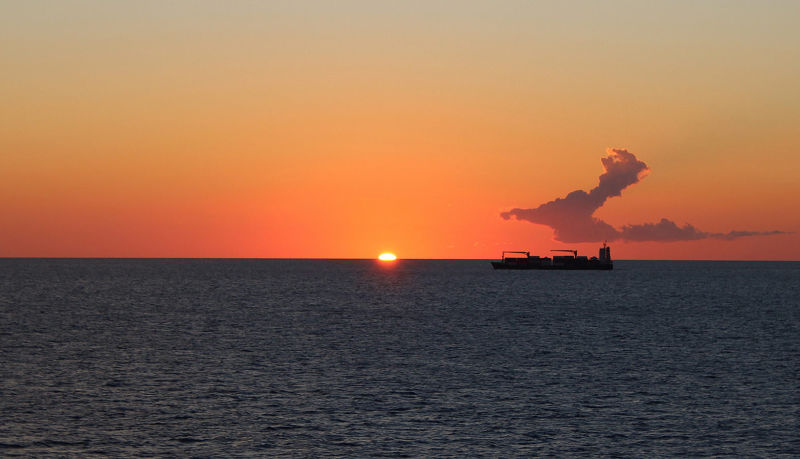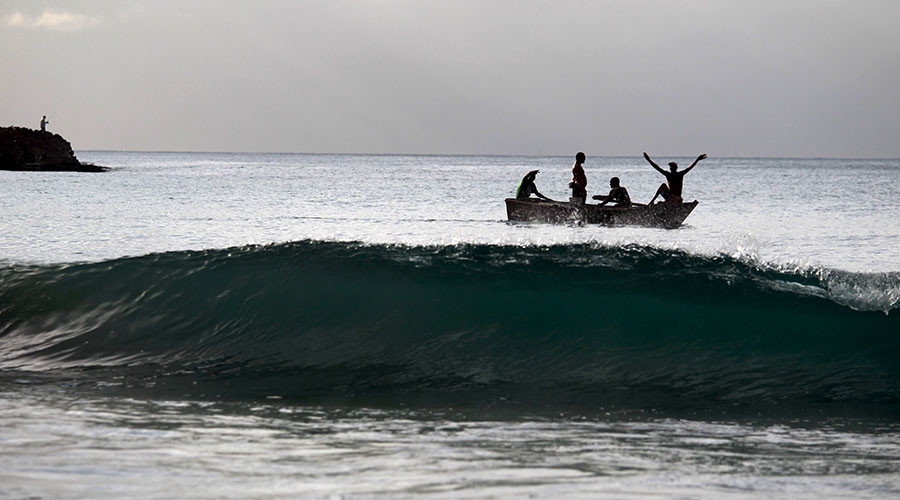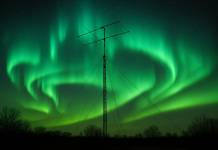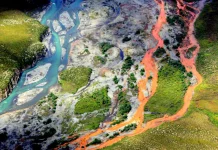Baffled scientists have discovered a mysterious noise that is emanating from the Caribbean Sea.
This low pitched sound cannot be heard by humans but can be detected from space. Scientists have never heard anything like it.

Beneath the hum of giant waves and other unexplained noise from the deep ocean, another baffling sound is emitted by the Caribbean Sea.
Scientists at the University of London have found that due to the size of the sea, it’s producing a sound from its seafloor which plays a note of A-flat.
This new underwater noise, far too low pitched for humans to hear can be detected from space. Scientists have never seen—or heard—anything like it.
Located southeast of the Gulf of Mexico, the Caribbean Sea features a large basin bounded by South America, Central America, and the Caribbean Islands. It’s a critical cog in the global circulation belt, forming currents that feed directly into the Gulf Stream.
Initially looking at ocean pressure in the area, researchers at the University of Liverpool discovered “inexplicable pressure oscillations” across the sea’s basin and decided to look closer at what was going on.

After spotting the weird oscillations in models, Hughes and his colleagues decided to see if they could observe the phenomenon in the ocean. Combining pressure readings collected from the bottom of the Caribbean Sea between 1958 and 2013 with tide gauge records and data from NASA’s Grace satellite, the researchers discovered that the basin of Caribbean Sea acts like a giant whistle.
There is a current that flows east to west through the Caribbean Sea. It’s very narrow and quite strong. Just like a narrow jet of air, it becomes unstable and creates eddies.
When those waves strike the western boundary of the basin, they die out and reappear at the eastern edge. This phenomenon, flashily named the “Rossy wormhole,” was first described several years back. Scientists now know that waves of certain shapes and sizes will resonate when they hit that western wall, just as certain frequencies resonate when you blow into a whistle. In both cases, the resonant frequency produces a sound.
But because the basin of the Caribbean Sea is so vast compared with an actual whistle, the resonant frequency is extremely low. It takes 120 days for waves to propagate east to west in the basin, yielding an A-flat tone that’s roughly 30 octaves below the bottom of a piano. A pitched-up version of that excessively eerie sound can be heard in the clip above.
This mysterious noise from the deep has been dubbed the “Rossby Whistle”. The phenomenon can be detected from space owing to fluctuations in Earth’s gravity field as pressure changes propagate across the entire basin.
The ocean is always speaking to you… At least in the Caribbean Sea.
A Rossby Whistle: A resonant basin mode observed in the Caribbean Sea












